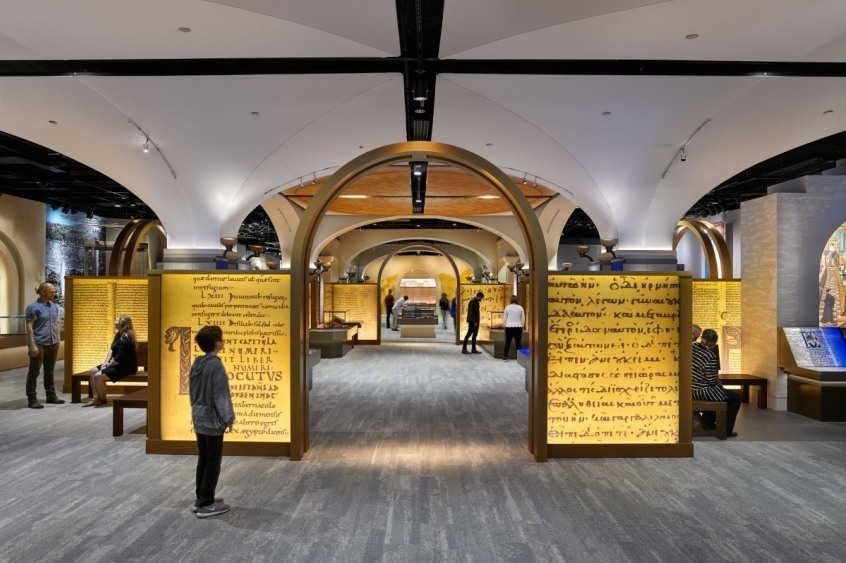
The Museum of the Bible has launched a £5m lawsuit against a former Oxford classics professor over the sale of biblical papyrus fragments that are alleged to have been stolen.
Dr Dirk Obbink, 64, is accused of selling ancient Bible fragments belonging to the Egyptian Exploration Society without permission.
He was a general editor of the Oxyrhynchus Papyri at the Egyptian Exploration Society until 2016.
The professor was arrested last year on suspicion of theft and fraud but was released as the police investigation continues.
He denies the allegations and has in the past claimed that he is the target of a "malicious attempt to harm my reputation and career".
The lawsuit against him has been brought by Hobby Lobby, the retail chain that founded the Museum of the Bible in Washington DC.
The claim filed by the company in New York states that it was involved in seven private sales of priceless papyri and ancient objects by Obbink between 2010 and 2013, The Sunday Times reports.
Read More: There is big money to be made in the sale of Bible artefacts - and that's part of the problem
At least 32 items in its collection have been identified as being allegedly stolen by the professor.
According to the claim, Obbink said the papyri had come from private collectors.
"Some of the fragments were stolen by Obbink from the Egyptian Exploration Society, the custodian of the largest collection of ancient papyri in the world," the claim says.
It goes on to claim that Obbink "acted throughout his career as a private dealer of papyri fragments and other antiquities to the world's greatest museums and private collectors."
It adds, "That some unknown number of the fragments were stolen renders all the fragments unsaleable and worthless to Hobby Lobby."
Last year, the museum sued auction house Christie's for allegedly deceiving the company about the legality of the sale of a rare cuneiform tablet.
Earlier this year, the museum announced that it was returning thousands of manuscripts and papyrus fragments to Egyptian authorities after questions were raised about the legality of their acquisition.













